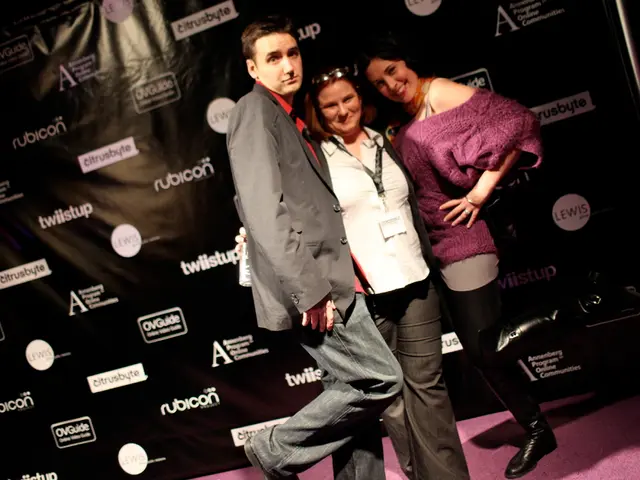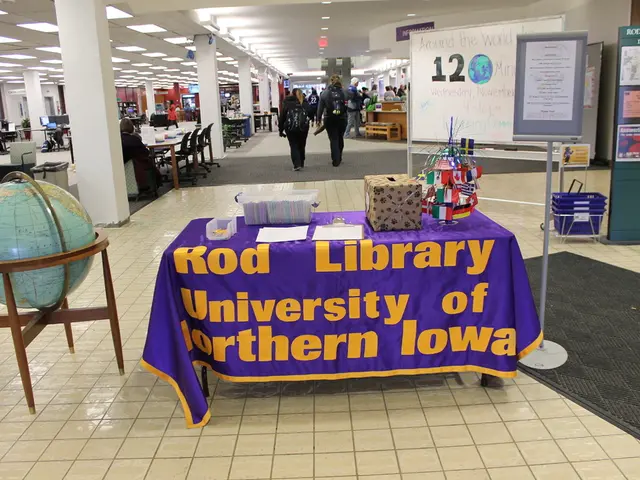Game creators express concern over fans' devotion: "Noticing how they linked their identity to a game, hoping it would flop to make a statement: 'Look at them, see the game's sales decline?'"
In a revealing conversation, David Gaider, former lead writer for BioWare's Dragon Age series, discusses the nature of role-playing games (RPGs) and the passionate fandom they inspire, particularly in relation to his new RPG-tinged roguelike deckbuilder Malys. Gaider shares concerns about the toxicity that can emerge when fans passionately defend or attack games, a phenomenon he observes as particularly prevalent in the realm of RPGs.
Gaider acknowledges the diversity of opinion within the RPG community, with fans often disagreeing on what an RPG should entail. He adds that this can lead to extreme reactions, particularly when the wrong decisions are made, as such choices may be perceived as threats to the integrity of the game or the community itself.
The long-time industry veteran also touches upon the role of the "outrage machine," fueled by individuals who derive profit from stirring controversy around games. He notes that this is not an isolated trend but part of a broader issue, where fans increasingly tie their personal identities to the games they love. As a result, any negative impact on a game can feel like a personal insult, leading to fierce backlash.
Gaider highlights his personal experience with this issue through Dragon Age, where even as a lead writer with limited influence over the final product, he encountered backlash for decisions fans either liked or disliked. He suggests that, in today's climate, it might be wiser for developers to adopt a lower profile and avoid public scrutiny.
Recent events, such as the Palworld team's decision to temporarily disappear from public view amid allegations and threats, underscore Gaider's points. The team experienced a wave of accusations when they chose to lie low for a few months, which only intensified once they reemerged.
Likewise, Neil Druckmann, Naughty Dog's creative director, has taken steps to protect the star of Intergalactic: The Heretic Prophet from online harassment experienced by the cast of The Last of Us 2. While these cases are notable, they are not isolated incidents, as many community managers and developers have faced similar challenges.
The complicated relationship between RPG fans, their passion for the games, and the developers who create them is a reminder of the intricate dynamics at play within the gaming industry. Balancing fan expectations, managing toxic fandom, and nurturing a positive, supportive community are essential challenges that developers and publishers must navigate to ensure the continued success of RPGs.
References:
- Vogt, S. (2018, November 30). "The Importance of Voice Actors in Video Games." Fandom. https://fandom.com/articles/the-importance-of-voice-actors-in-video-games
- Miller, R. (2019, June 11). "Playing a Part: How Voice Actors Bring Characters to Life in Video Games." Gamespot. https://www.gamespot.com/articles/playing-a-part-how-voice-actors-bring-characters-to-life-in-video-games/1100-6472342/
- Bousquet, N. (2017, September 7). "Game Development and Fandom: Learning from the Work of Boutique Game Studios." Pocket Gamer. https://www.pocketgamer.com/merchant/news/79454/game-development-and-fandom-learning-from-the-work-of-boutique-game-studios/
- Jenkins, H. (2020, March 24). "Emboldened Bullies: Online Harassment and the Sad State of Fandom." The New Yorker. https://www.newyorker.com/culture/neil-strauss/emboldened-bullies-online-harassment-and-the-sad-state-of-fandom
- Williams, G. (2018, February 2). "The Power of Role-Playing: How Video Games Speak to Our Minds." The Verge. https://www.theverge.com/2018/2/2/16884222/role-playing-games-lets-play-psychology-benefits
- In discussions regarding the impact of RPGs on fans, Gaider's reflections on Malys extend to the genre's profound influence on social-media platforms, where debates about RPGs and their creative choices often escalate.
- As entertainment evolves, incorporating RPG elements is not just limited to consoles, but extends to books, TV shows, and even pop-culture, blurring the lines between different forms of media and sparking widespread discussions among fans.
- Gaider's observations about the toxicity within RPG communities are mirrored in other industries, with celebrities and public figures often subjected to similar online harassment due to their affiliation with certain works or projects.
- The deep connection between fans and games can create unexpected opportunities, as seen in fan-created mods, cosplays, and cultures centered around beloved RPGs, adding another layer to the entertainment landscape.
- While gamers passionately discuss news, deals, action, adventure, and RPG titles, a significant portion of the conversation is centered around the characters that voice these games, shedding light on the crucial role of voice actors in bringing these worlds to life (Vogt, 2018; Miller, 2019).
- Balancing the complex relationship between fans, developers, and creators requires continual learning and collaboration to foster a more inclusive, supportive environment within the entertainment industry, as stakeholders strive for a positive culture that uplift both games and communities alike (Bousquet, 2017; Jenkins, 2020; Williams, 2018).







